Seven Sisters of India
The seven Sister States also known as "Paradise Unexplored" is a name given to the neighboring states of Arunachal Pradesh, Assam, Meghalaya, Manipur, Mizoram, Nagaland and Tripura in northeastern India. These states cover an area of about 250,000 km2, or about seven (7) percent of India's total area. They had a population of 38.6 million in 2000, about 3.8 percent of India's total. Although there is great ethnic and religious diversity within the seven states, they also have similarities in political, social and economic contexts

Seven Sister States
Arunachal Pradesh
- Namdapha National Park
- Sela Pass
- Ziro Valley
- Glow Lake
- Roing
- Bomdila
- Nuranang Falls
- Pakhui Wildlife Sanctuary
- Solung Festival
- Golden Pagoda
Assam
- Kaziranga Wildlife Sanctuary
- Upper Assam
- Visit Majuli island
- River Cruise in Brahmaputra
- Hajo town
- Silk town – Sualkuchi
- A day in Peacock Island
- Picturesque Haflong
- Barpeta – Land of the Satras
- Kamakhya temple
Manipur
- Visit Singda Dam
- Loktak Lake
- Kangla Fort
- Imphal Valley
- Shirui Kashung
- Santhei Natural Park
- Keibul Lamjao National Park
- Khangkhui Cave
- Nillai Tea Estate
- Kangla Fort
Meghalaya
- Living Root Bridges
- Umiam Lake
- Mawsmai Cave
- Siju Cave
- Laitlum Canyon
- Bara Bazaar
- Mawlynnong Village
- The Dwaki River
- Gleneagles
- Laitkor Peak
Mizoram
- Reiek Heritage Village
- Durtlang Hills
- Mizoram State Museum
- Burrabazar
- Phulpui Grave
- Tamdil Lake
- Khawnglung Wildlife Sanctuary
- Infinite Ainawn Park
- Murlen National Park
- Vantawng Falls
Nagaland
- The State Museum
- Kachari Ruins, Dimapur
- Kisama Heritage Village
- Kohima War Cemetery
- Ntangki National Park
- Dzoukou Valley Bridge
- Longwa
- Diezephe Craft Village
- Touphema Village
- Saramati Peak
Tripura
- Unakoti
- Neer Mahal Palace
- Ujjayanta Palace
- Tripura Sundari Temple
- Heritage Park
- Jampui Hills
- Mahamuni Buddha Mandir
- Tripura Government Museums
- Tepania Eco Park
- Devtamura
North East History
When India became self-governing from the United Kingdom in 1947, only (3) three states covered the area. Manipur and Tripura were princely states, while a much bigger Assam Province was under direct British rule. Its capital was Shillong (current day Meghalaya's capital).Four (4) new states were carved out of the original territory of Assam in the decades following independence, in line with the strategy of the Indian government of reorganizing the states along ethnic and linguistic lines. Therefore, Nagaland became a separate state in 1963, followed by Meghalaya in 1972. Mizoram became a Union Territory in 1972, and achieved statehood - along with Arunachal Pradesh - in 1987.
Ethnic and religious composition
Apart from for Assam, where the main languages are Assamese and Tripura, where the major language is Bengali, the province has a predominantly tribal population that speaks plentiful Tibeto-Burman and Austro-Asiatic languages. Meitei, the third most spoken language in this region is a Tibeto-Burman language. Hinduism and Christianity are the predominant religions in this region. The large and populous states of Assam, Tripura and Manipur remain predominantly Hindu, with a sizeable Muslim minority in Assam. Through the work of Christian missionaries, Christianity has become the major religion in the states of Nagaland, Mizoram and Meghalaya. Seven Sisters in derived from the word- northeast states
Northeast States Map
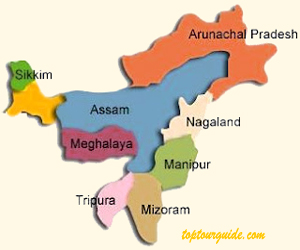
North East Natural resources
Most important industries in the area are tea-based, crude oil and natural gas, silk, bamboo and handicrafts. The states are greatly forested and have plentiful rainfall. There are beautiful wildlife sanctuaries, tea-estates and mighty rivers like Brahmaputra. The region is home to one-horned rhinoceros, elephants and other endangered wildlife. For security reasons, including inter-tribal tensions, widespread insurgencies, and disputed borders with neighboring China, there are restrictions on foreigners visiting the area, hampering the development of the potentially profitable tourism industry.
North East India Cuisine
Peoples are fundamentally non-vegetarian. Even if they chef vegetable they will add non-vegetarian to the same. In most parts of this region, especially Nagaland people eat every accessible animal and do not throw away any part of it. Fish remains the much loved dish for most. Tripura and Assam, due to their closeness with parts of Bengal shows more love for fish than any other state. Rice is the fastener food in this region. In Assam people eat rice in variety of forms and flavors. Pitha, a rice based sweet is a well-liked dish of this region. People put less oil and utilize mustard oil as the medium of cooking. Dishes prepared from ducks, bamboo shoots etc are very much popular in North-East Zone.
Popular North East India Cuisine

Panch Phoron Taarkari

Misa Mach Poora (Grilled shrimps)

Assam Laksa Stock
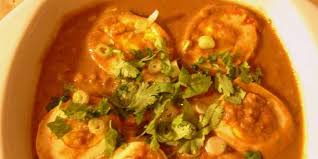
Dal and Eggs

Koat Pitha (Banana pitha)

Bamboo Shoot Fry
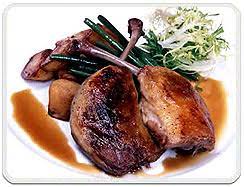
Poora Haah (Roasted duck)

Fish Fried Rice

Thukpa /Gya-Thuk (Noodle soup)
The British Rule
The people of Assam had suffered a lot due to the invasion by Myanmar, Moamoria rebellion, and the fall of the Ahom kingdom. They misunderstood the purpose of the British and welcomed them not knowing their real purpose. The British wanted to occupy Assam and add it to the British Empire which consisted of almost whole India. The posts under the Pyke system were filled up with people of non-Assamese origin. The people in general and the intellectuals in particular were unhappy with this decision and plans were set in motion to overthrow the British rule.
Assam took part in the non-cooperation progress launched by Mahatma Gandhi along with the rest of country. At the 2nd session of the Indian National Congress (INC) held at Calcutta Assam was represented by Bipin Chandra Pal, Satyanath Baruah, Debi Chandra Baruah, Kamini Kumar Chandra. The year 1912 is a significant year as in this year Mahatma Gandhi visited Assam, Assam Bengal train service and steamer companies went on smack and after 63 years Assam came under the rule of Governor which lasted till 1936. Assam took part in the Civil Disobedience Movement launched by Mahatma Gandhi in 1930 along with the rest of the country. Self governance was introduced in Assam in 1935. People of Assam took part in the Quit India Movement of 1942.
When India achieved its independence in 1947 the people of Assam won control of their state assembly and started a campaign to reaffirm the dominance of Assamese civilization in the region and provide more employment opportunities for native Assamese. Due to this some tribal areas were separated. These tribal areas started demanding independence from India. The Indian Government partitioned the former Assam into the tribal states of Nagaland, Mizoram, Meghalaya, Manipur and Arunachal Pradesh.
The Government of India signed a agreement with the people of Assam in 1985. Asom Gana Parishad party came to power after elections were held in the state. In the 1990′s military groups like ULFA, The United Liberation Front of Assam started demanding independence of Assam from the middle government. These groups do not hesitate to use force and resort to violence to make their point. The government improved the presence of the armed forces in the region to control these separatist outfits. The Army has been accused by the local people of violating human rights.
North East India Tribes
Whenever we speak of tribes and tribal civilization in India, the north-eastern region of India at once comes to mind. And there are suitable reasons for that. The region in the north east is still undamaged by modernization. Apart from protection a magnificent tribal life, North East is also rich in terms of landscape, flora and fauna.
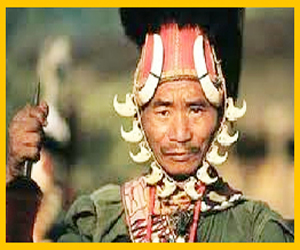
Arunachal Pradesh has 26(Twenty Six) major tribes. In the state of Orissa, there are around 62 (Sixty two) different tribes totaling up to 7 million. Most important tribes in Orissa include Bondas, Gadabas, Koyas, Kondhas and Sauras. Nagaland is home to 16 major tribes in northeastern India. The state of Assam in North East is also home to a number of ancient tribal groups. These include Khamti, Phakial, Khamyang, Aitonia, Nara, Gurung and Shyam.
North East Attractions
The Familiar attractions of North East are described here


Assam tea garden
The tea plant is grown in the lowlands of Assam, unlike Darjeeling and Nilgiris, which are grown in the highlands.
Continue reading
One Horned Rhino
The Indian rhinoceros also called the greater one-horned rhinoceros and Indian ne-horned rhinoceros, belongs to the Rhinocerotidae family
Continue reading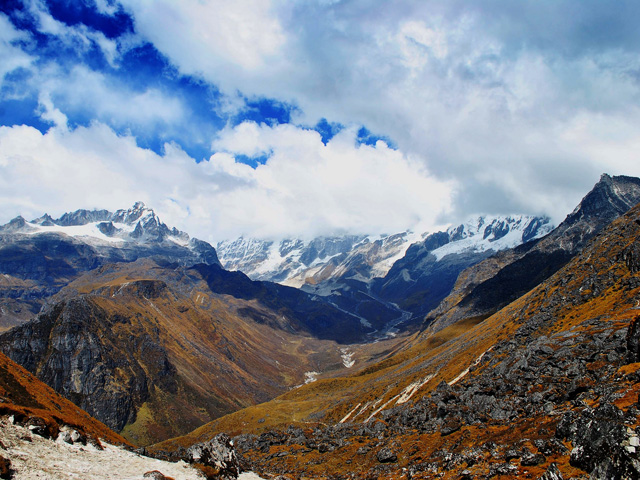
Trekking in Sikkim
Sikkim is just about the greatest kept strategies inside Himalayas in addition to hiking travels throughout Sikkim can be quite a wonderful experience
Continue reading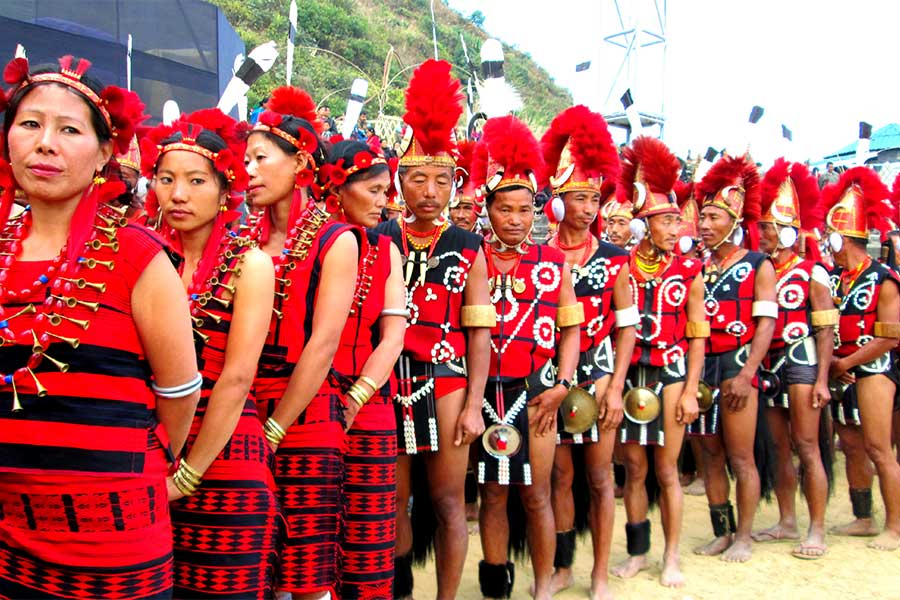
Nagaland Tribes
Nagaland, the land of the welcoming and warm Nagas, lies in the bend of India’s North-East-bordering Myanmar.
Continue reading
Kaziranga National Park
In the center of Assam state(india), this park is one of the last areas in eastern India undisturbed by a human presence
Continue reading
Cherrapunji
Sohra, recently often known as Cherrapunjee, a Sub-Division from the Distance Khasi Hills District involving Meghalaya
Continue reading
Mighty Kanchenjunga
Kanchenjunga, and Khangchendzonga, is the third highest mountain in the world.
Continue reading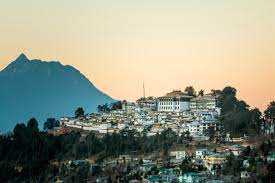
Tawang Monastaries
Tawang Monastery as well as Tawang Gompa is the biggest monastery throughout India and the next biggest throughout Parts of asia.
Continue readingAbout
The 7 Sister States also known as "Paradise Unexplored" is a name given to the neighboring states of Arunachal Pradesh, Assam, Meghalaya, Manipur, Mizoram, Nagaland and Tripura in northeastern India.



